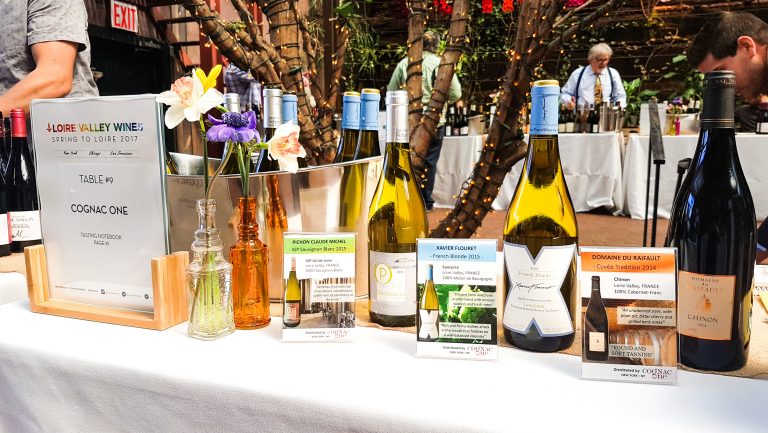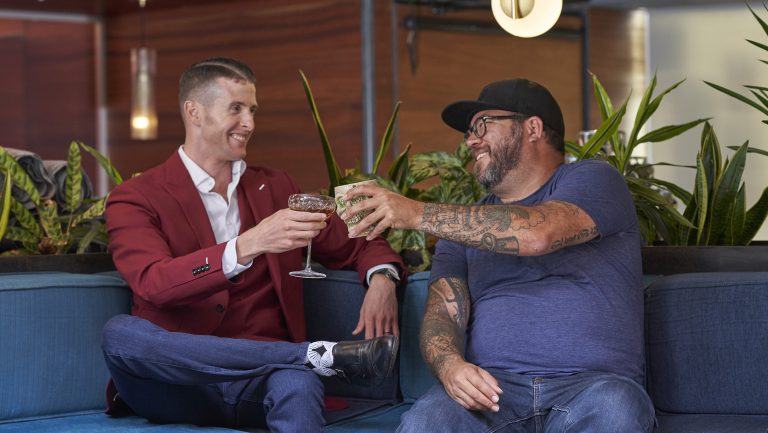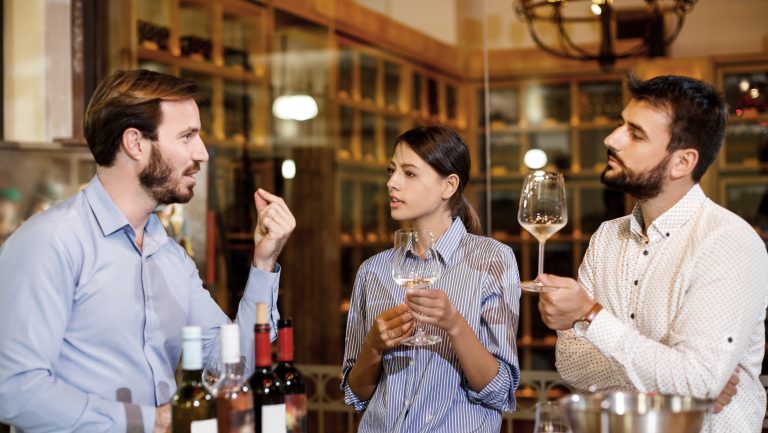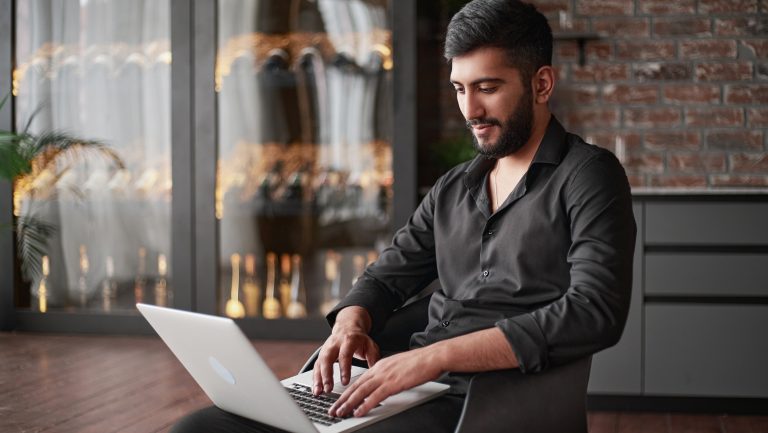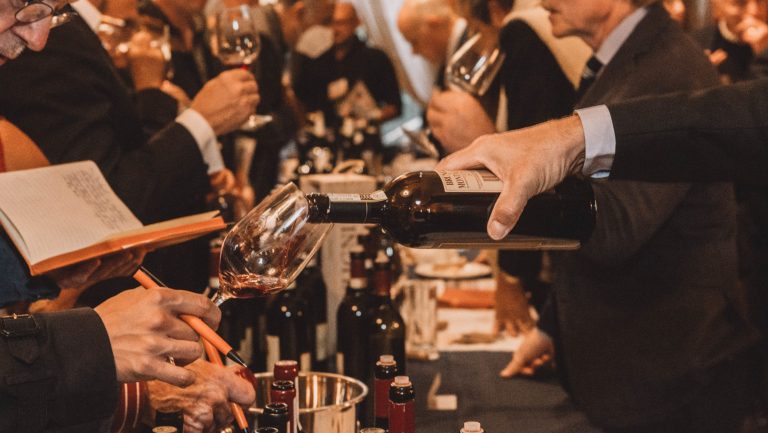Tasting buyers on sample bottles is the most effective way to get them excited about the wines in importer and distributor portfolios—and to increase the chances of sales. But with a limited number of samples to go around, how do industry professionals manage that precious stock? SevenFifty Daily spoke to several importer and distributor reps across the country to find out their strategies for stretching sample bottles and making the most of their time with buyers.
Host Group Tastings
Stephanie Caraway, the fine-wine manager for Lux Wines, based in Modesto, California, covers markets throughout the southwestern U.S. In the past, she was able to jump in the car and go do tastings with as many buyers as possible. But these days, buyers are being increasingly inundated by samples, so it’s harder to be successful with that strategy. Caraway has turned to hosting large trade tastings and luncheons. “It’s easier to host several buyers at once,” she says, “and maximize everyone’s time and resources.” By gathering her prospects at one location, not only can she showcase sample bottles to multiple buyers at the same time but she can keep her samples fresher because she’s serving them all in one sitting.
Make Quality a Priority
Xavier Flouret, the founder of Cognac One, an importing and distributing company based in New York City, says that quality over quantity is the mentality behind his brand. “We are totally quality oriented,” he says. “Our goal is freshness—to show and enjoy the wine at its best.” He notes that his reps have no sample budget, as such. “They can show as many wines as they want.” This tactic increases the likelihood of a successful sale, says Flouret. He also emphasizes that they use a Coravin device to help preserve their sample bottles.

Don’t miss the latest drinks industry news and insights. Sign up for our award-winning newsletters and get insider intel, resources, and trends delivered to your inbox every week.
Use Samples Strategically
“For me, samples are tools, and they should be used that way,” says Tyler Stacy, the sales manager at Grandes Places Sélections, an importer and distributor based in Sausalito, California. He adds that like most tools, they can be used in many different ways, and that ultimately, using as few bottles as possible would be the ideal route. Sample usage, according to Stacy, should be around 2 percent of sales and one should aim to sell four cases of each bottle opened. To ensure that sales goals are met, understanding your wines is key. “Knowing your wines very well is also a great way to stretch your samples,” he says, noting that reps should know how long each bottle of wine will last once it’s been opened. For example, he suggests presenting samples of sparkling wines only on the day the bottles are opened. Other wines—say, a Kabinett Riesling—might maintain enough character to show for an entire week. “And always taste, taste, taste,” he says. “Each appointment is a good opportunity to see how the wine has changed or evolved.”
Extend the Life of Samples
“Coravin, Coravin, Coravin,” says Caraway. She notes that while such devices are not foolproof, they’re a great way to preserve wine for an extended time. “[Although] wine can evolve to a place one may not prefer over a couple of weeks,” she says, “this is still the best way to stretch a sample bottle.”
Stacy says a caveat should be considered with regard to the Coravin and other preservation devices. “In my opinion,” he says, “they always seem to either take something out of the wine or add something to it.” He agrees that preservation devices work well for a certain period of time—if a bottle is resting nicely in a cellar and not disturbed. But when wine is “being thrown in and out of a bag and getting jostled around all day,” he says, it “just doesn’t seem to do well with Coravin, especially with the added expense of gas capsules.” He suggests using the Coravin with caution, factoring in the expense and being attentive to the fact that preservation devices won’t preserve a bottle forever.
Stay Organized
Catherine Aur, of Provisions Fine Beverage Purveyors in Tulsa, Oklahoma, explains that being organized with your schedule can help you make the most of your samples. “My most effective days in the market, where I get the most out of my samples,” she says, “are due to a well-planned week.” She points out that before leaving an account, it’s imperative to set up your next appointment and follow up with questions about what the buyers are looking for—while you have their attention. “These questions help to build the following week,” she says, “so that I can not only incorporate [the buyers’] wishes but also take out the wines we as a company are focusing on.” Aur says when she is thorough in her questions that by the end of the week, most of her planning is taken care of for the upcoming week.
Stacy agrees that being organized with your schedule is a highly effective way to ensure that samples will get used to their fullest potential. “You should be scheduling tasting appointments according to the sorts of wines you’ll be showing,” he says. “Or vice versa, [you should be] showing wines based on the types of accounts you’re seeing.” For example, if you already have an appointment on the calendar with an account that buys Italian wines exclusively, it’s beneficial, he says, to schedule appointments with other buyers who you know love the stuff.
Taste With Your Buyers
“Rarely will we drop bottles for buyers to taste at their leisure,” says Caraway. “In most states, it’s illegal to drop unopened bottles, and from a sheer follow-up and sales perspective, it’s ideal to taste and explore the wines together.” Stacy agrees, explaining that he usually avoids dropping off bottles for buyers to taste on their own because it often means those bottles will fall through the cracks—buyers forget about them. He concedes that there are instances when this can be successful—specifically, if you already have a wine open and you know a particular buyer might enjoy it. “I like to text a picture to a buyer I know might like the wine I have open and ask if I can drop it off,” he says. “If you have the right relationship with the buyer, this can work, but tread cautiously.”

Dispatch
Sign up for our award-winning newsletter
Don’t miss the latest drinks industry news and insights—delivered to your inbox every week.
Vicki Denig is a wine, spirits, and travel journalist based between New York and Paris. Her work regularly appears in Decanter, WineSearcher, Food & Wine, and more. She also works as a content creator / social media manager for a list of prestigious clients, including Beaupierre Wine & Spirits, Corkbuzz, Veritas Imports, and Crurated.

